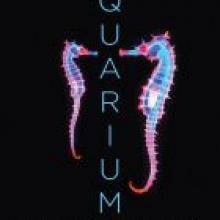
In David Vann's novels, the natural setting is often as much of a character as his protagonists.
He has many places from which to choose: Alaskan-born, he is widely travelled, lives in Asia for part of the year, teaches in the US and UK, and spends some time at his home near Auckland.
Readers can be vividly transported to the dusty Californian landscapes of his novels Dirt and Goat Mountain; equally, his love of water and marine life is evident, and features in much of his work including his non-fiction high-seas adventure A Mile Down.
Vann is adept at plumbing the depths when it comes to people's lives and interactions, too.
He cuts straight to the heart of the hurt in his analyses of families and relationships.
Much of his insight comes from his own shocking family history: his father's self-inflicted death when Vann was 13 (explored in his first work of fiction, Legend of a Suicide) and the murder/suicide of his stepmother's parents (which informs Caribou Island).
Fact and fiction are inextricably entwined in his work.
The central protagonists in his latest novel, Aquarium, are a single mother, Sheri, and her 12-year-old daughter, Caitlin, who are living in subsidised housing in industrial Seattle.
Sheri is one tough cookie.
She drives an old Thunderbird, works in a man's world as a labourer at the container port, and is hoping to become a crane operator.
She has a no-nonsense, no-frills attitude, is clearly trying to love and do her best, but has been made hard by the events that have shaped her.
Loss, abandonment, pain and anger bubble away below the surface, sometimes erupting uncontrollably.
Caitlin is bright as a button, desperate for more family, exploring her awakening sexuality and comforted by the subterranean world of the local aquarium, where she spends much of her time after school waiting for her mother to finish work and pick her up.
She seems wise beyond her years and is highly attuned to her mother's moods: ''My mother the best person in this world, the most generous, the strongest, but this was her dry season, when she was more like a storm than a person, wind-blown dust, accelerating from somewhere sourceless and vast, and I knew to hide.''
Both women are hiding secrets and hungry for love.
Caitlin watches mackerel feeding in the aquarium with their gaping mouths seemingly going nowhere: ''The food would never reach their stomachs. They'd be forever hungry, always eating and finding nothing. That's wrong.''
Sheri meets Steve, a gentle, harmonica-playing, food- and fun-loving IT specialist, who understands Caitlin's fascination with fish and is kind to both mother and daughter.
Caitlin is desperate for more contact; her relationship with a schoolmate is intensifying, and she has just befriended an old man at the aquarium.
Life for both females unexpectedly seems too good to be true, but in Vann's world, love comes with compromises and sacrifices.
Vann's writing is so pared down at first it leaves the reader without any moorings. His sentences are short, sparse, urgent.
Nothing in this novel is written in quotes, there are no ''he saids'' or ''she saids'' to guide the reader as to what is spoken and what is only thought or felt.
But it doesn't take long before the reader simply surrenders to the stream of consciousness and lets the story take its brutal yet beautiful shape.
Vann writes equally convincingly from male and female perspectives. He sums up relationships powerfully and pertinently.
The terrible pain families inflict on each other and the seemingly unalterable legacies that generations must bear are omnipresent: ''Anything is possible with a parent. Parents are gods. They make us and they destroy us.
"They warp the world and remake it in their own shape, and that's the world we know forever after. It's the only world. We can't see what it might have looked like otherwise.''
He sees the darkest depths, and takes the reader there, but I felt this latest work marked a noticeable change for him, maybe a further maturing as a writer, certainly a more subtle treatment of the issues that preoccupy him - not least among them how to live life, not just survive it.
In Aquarium - in my opinion his best book yet - I feel he has come closest to answering that, without sacrificing anything of the potency of his previous works.
He finally lets himself, his characters and the reader come up for air, with the unprecedented possibility of hope, redemption and forgiveness.
Of course, you still have to find the strength to swim to the surface to reach them.
• Helen Speirs is ODT books editor.











